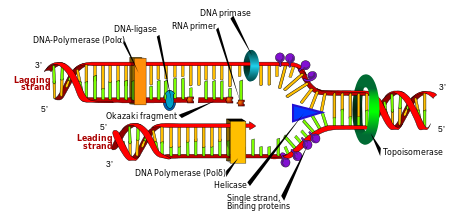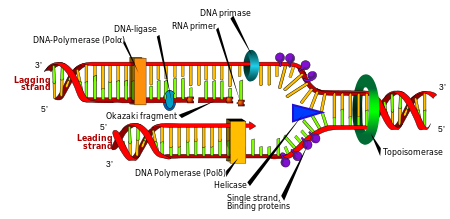This post contains quotes from the article “Delayed Cytotoxicity and Cleavage of Mitochondrial DNA in Ciprofloxacin-Treated Mammalian Cells” that was published in Molecular Pharmacology in 1996. It’s a good article. It’s an interesting and damning article. It’s a difficult article. It would be nice if more people read it, and I wish that its implications were better understood and explored by research scientists and regular people alike.
Direct quotes from the article are in bold and italicized. My commentary follows each quote.
“The loss in mtDNA was associated with a delayed loss in mitochondrial function. Here, we report that the 4-quinolone drug ciprofloxacin is cytotoxic to a variety of cultured mammalian cell lines at concentrations that deplete cells of mtDNA.”
Ciprofloxacin depletes mitochondrial DNA in mammalian cells. It’s right there in black and white. I have no idea why it didn’t strike anyone as alarming when it was published in 1996. It sure is alarming now.
It should be noted that, “There is indeed experimental evidence that prolonged injury to mitochondria, such as that which typifies oxidative injury to mitochondrial DNA or to components of the electron transport chain (ETC), has to cross a certain threshold (or a number of thresholds) before cell damage or cell death becomes manifest.” (source) And that mitochondrial damage is linked to “symptoms such as fatigue, muscle pain, shortness of breath, and abdominal pain can easily be mistaken for collagen vascular disease, chronic fatigue syndrome, fibromyalgia, or psychosomatic illness.” (source) Mitochondrial dysfunction has been linked to multiple diseases of modernity including autoimmune diseases, neurodegenerative diseases, autism and “mysterious” diseases such as fibromyalgia and ME/CFS.
Also, as I’ve pointed out before, the FDA has noted in their internal documents that fluoroquinolones are toxic to mitochondria, and that mitochondrial damage is linked to many diseases, including neurodegenerative diseases. More information about that can be found in the post, “FLUOROQUINOLONE ANTIBIOTICS DAMAGE MITOCHONDRIA – FDA DOES LITTLE”
“Resistance was not due to a decrease in cellular drug accumulation, suggesting that ciprofloxacin cytotoxicity is caused by the loss of mtDNA-encoded functions. Analysis of mtDNA from ciprofloxacin-treated cells revealed the presence of site-specific, double-stranded DNA breaks.”
Consequences? Implications? What happens when cytotoxicity is induced by DNA breaks?
“These results suggest that ciprofloxacin may be causing cytotoxicity by interfering with a mitochondrial topoisomerase Il-like activity, resulting in a loss of mtDNA.”
Many assert that fluoroquinolones only affect bacterial topoisomerases. It turns out that mitochondrial topoisomerases are affected too. Fluoroquinolones should be used as prudently and cautiously as all other topoisomerase interrupting drugs. All the other topoisomerase interrupting drugs are chemo drugs that are only used to treat cancers. To prescribe a drug that depletes mitochondrial DNA and affects human topoisomerases in order to treat urinary tract infections and traveler’s diarrhea is absurd, short-sighted and wrong.
It should also be noted that, “Our data suggest that chemicals or genetic mutations that impair topoisomerases, and possibly other components of the transcription elongation machinery that interface with topoisomerases, have the potential to profoundly affect expression of long ASD (autism spectrum disorder) candidate genes. Length-dependent impairment of gene transcription, particularly in neurons and during critical periods of brain development, may thus represent a unifying cause of pathology in many individuals with ASD and other neurodevelopmental disorders.” (source)
The team of scientists who wrote that last quote are looking at whether or not fluoroquinolones turn on genes that are related to autism. The results of their exploration have not yet been published.
What is known though, is that topoisomerases are really important. Duh–they’re the enzymes responsible for proper DNA and RNA replication—did someone think they were optional? Interrupting topoisomerases with drugs is a really, really, really bad idea.
“Studies have also suggested that 4-quinolones may interfere with cell growth by inhibiting mammalian mtDNA replication (6, 11). Castora et al. (11) found that the 4-quinolone drugs nalidixic acid and oxolinic acid inhibited mtDNA replication in isolated rat liver mitochondria. These investigators inferred that this effect might be mediated by the inhibition of a mitochondrial topoisomerase II activity related to the bacterial enzyme DNA gyrase.”
Naladixic acid is the backbone of all fluoroquinolone antibiotics. The quote speaks for itself.
“We recently demonstrated that the 4-quinolone drugs nalidixic acid and ciprofloxacin cause a selective loss of mtDNA in drug-treated mammalian cells (6). The loss of mtDNA was associated with a decrease in mitochondrial respiration and an arrest in cell growth. These results suggested that inhibition of mammalian cell proliferation by 4-quinolone drugs might be caused by the selective depletion of mtDNA, resulting in compromised mitochondrial activity. We now report that ciprofloxacin causes a delayed cytotoxicity in cultured mammalian cells at concentrations that deplete cells of mtDNA.”
DELAYED CYTOTOXICITY! When someone says that you “shouldn’t” be experiencing an adverse reaction to a fluoroquinolone weeks, months or even years after you took the drug, show them this. Delayed cytotoxicity and mtDNA depletion–they’re right there. Fluoroquinolones are NASTY drugs. Why they are used frivolously is beyond my comprehension.
“We previously demonstrated that ciprofloxacin induces a selective depletion of mtDNA in mammalian cells. The depletion of mtDNA preceded a decrease in mitochondrial respiration and cell growth, suggesting that mtDNA was a primary target of drug action (6). Studies have recently shown that some cultured mammalian and avian cells can survive in the absence of mtDNA-encoded functions if the growth medium is supplemented with pyrimidines, pyruvate, and elevated concentrations of glucose (21-23). Cells deficient in mtDNA rely exclusively on glycolysis for energy.”
Hmmmmm…. So do our cells need/want more glucose??
And, again, I’d like to point out the clearly stated, “ciprofloxacin induces a selective depletion of mtDNA in mammalian cells.”
“The apparent decrease in mtDNA cleavage at higher drug concentrations is reminiscent of the effect of DNA intercalating anticancer drugs on nuclear topoisomerase II enzymes (29, 30). Intercalating anticancer drugs such as 2-methyl-9-hydroxyellipticinium and Adriamycin have been shown to stimulate topoisomerase II cleavage at low concentrations but inhibit cleavage at high drug concentrations.”
Fluoroquinolones are chemo drugs. All topoisomerase interrupters are chemo drugs. Don’t give people chemo drugs to treat sinus infections. It’s not a difficult notion.
http://www.collective-evolution.com/2014/10/15/fda-allows-chemo-drugs-prescribed-antibiotics/
http://www.hormonesmatter.com/cipro-levaquin-avelox-fluoroquinolones-chemo-drugs/
“The non-exonuclease-treated DNA contained both linear and nicked circular forms of mtDNA but did not contain closed circular supercoiled mtDNA (Fig. 8, lane A), suggesting that ciprofloxacin induces single- as well as double stranded protein-linked breaks in the mtDNA.”
Thanks for breaking my DNA, Bayer.
“The current results indicate that ciprofloxacin is not cytotoxic unless cells are continuously exposed to drug for a minimum of three or four cell doublings. In comparison, drugs that target nuclear topoisomerase II trigger an apoptotic type of cell killing, even after a short 2-hr drug exposure.”
Interesting. What is the time-frame for cell doubling? And I don’t think that the question has been definitively answered as to whether or not fluoroquinolones are stored in lipids, continuously exposing cells to damage, or not.
“Another possibility is that the growth inhibitory and cytotoxic effects of ciprofloxacin are caused by the inhibition of an essential mitochondrial function or functions. This is supported by the following observations: First, treatment of mammalian cells with ciprofloxacin results in a selective depletion of mtDNA, leading to a decrease in mitochondrial respiration (6). These mitochondrial events precede the drug induced loss in cell growth and viability (Ref. 6 and current results). Second, cells become resistant to ciprofloxacin when they are grown under conditions that do not require mtDNA encoded functions. Third, ciprofloxacin induces the formation of site-specific, protein-linked breaks in mtDNA, indicating the presence of a drug-sensitive mitochondrial topoisomerase Il-like activity.”
Given the connections between ciprofloxacin and mitochondrial damage–depleting mtDNA and decreasing mitochondrial respiration, and the connections between mitochondrial damage and multiple chronic, multi-symptom illnesses, it is not absurd to make the assertion that ciprofloxacin, and other fluoroquinolones, can cause those diseases (autoimmune diseases, neurodegenerative diseases, fibromyaligia, autism, ME/Chronic Fatigue Syndrome, etc.).
The article, “Mitochondria Resuscitation: The Key to Healing Every Disease” by Chris D. Meletis, N.D. is a succinct and illustrative look at how mitochondria are related to multiple areas of health.
It’s nice and dandy that “cells become resistant to ciprofloxacin when they are grown under conditions that do not require mtDNA encoded functions” but human beings don’t have a bunch of cells that live in petri dishes that can grow without requiring our mitochondrial DNA functions. I wonder what happens when human cells attempt to adapt to resist ciprofloxacin and adapt by ceasing to require mtDNA encoded functions. I bet you a buck that no one knows the answer to that question.
Cipro breaks mitochondrial DNA. WHY WASN’T THIS REPORT PAID ATTENTION TO? All of the results in it warrant fluoroquinolones being taken off of the market until further investigation can be done. This is absurd. I know that there are cases where fluoroquinolones can save lives, I get that, and I’m usually decently reasonable about not calling for their removal from the market. But this article spooked me severely. We, collectively, have NO CLUE what the consequences of depleting our mitochondrial DNA are.
“Neither cell growth nor viability seems to be affected until cells have undergone three or four cell doublings in the presence of ciprofloxacin (Ref. 6 and current results). During this time span, the content of mtDNA decreases >90%, suggesting that drug is causing a loss in cell growth and viability by interfering with mtDNA replication.”
Nasty drugs – but if you metabolize them fast enough, they’re less nasty – apparently.
“Ciprofloxacin, as well as several other 4-quinolone drugs, can cause significant unwinding of DNA”
It’s what they’re designed to do. They’re topoisomerase interrupters. The mechanism of action for ciprofloxacin is, “The bactericidal action of ciprofloxacin results from inhibition of the enzymes topoisomerase II (DNA gyrase) and topoisomerase IV (both Type II topoisomerases), which are required for bacterial DNA replication, transcription, repair, and recombination.” (source) It doesn’t take a rocket scientist to realize that drugs that inhibit the DNA and RNA replication, transcription, repair and recombination are dangerous. I hate the FDA for allowing these dangerous drugs to be used as antibiotics. It’s ludicrous.
“Delayed Cytotoxicity and Cleavage of Mitochondrial DNA in Ciprofloxacin-Treated Mammalian Cells” is not a hopeful article. It is, frankly, a terrifying article. More than 20 million prescriptions for fluoroquinolones are given out in Americans each year for the last couple decades, and that’s only a small portion of the prescriptions given worldwide. What have we done to our collective mitochondrial DNA?? What are the consequences of depleting our mitochondrial DNA? No one knows the answers to those questions.
Anyone who thinks that people aren’t sick with the diseases related to mitochondrial poisoning, isn’t looking very hard. People are sick. They’re in pain (peripheral neuropathy is thought to be caused by mitochondrial malfunctions), they’re depressed and suffering from even worse psychiatric disorders, they have heart conditions and metabolic disorders (source), ME/Chronic Fatigue Syndrome, autism, and many other misunderstood, chronic illnesses. There are many potential culprits for the sorry state of human health in the 21st century, but fluoroquinolones aren’t even on the list according to most people.
FLUOROQUINOLONES DEPLETE MITOCHONDRIAL DNA, LEAD TO MITOCHONDRIAL DYSFUNCTION AND ALSO OBLITERATE THE MICROBIOME!
I’ll keep screaming it until I’m heard.
Back in 1992 it was noted that, “the interaction (of fluoroquinolones) with DNA is still of great concern because of the possible long-term genotoxicity of quinolone compounds, which are increasingly adopted as first-choice antibiotics for the treatment of many infections, and because it addresses the real mechanism of action of this class of molecules.” (source)
I really wish that these warnings had been heeded. Sadly, they’ve been ignored.
Our poor mitochondrial DNA. I hope that mtDNA recovers and that the situation isn’t as dire as I suspect. But the truth is, no one knows. No one has a clue what the consequences of depleting mtDNA through unnecessary use of topoisomerase interrupting drugs are.
Floxies certainly know that the consequences of fluoroquinolones can involve a massive amount of pain and suffering. It’s not okay.
Bayer, Johnson & Johnson, the FDA and everyone else involved with frivolously prescribing these drugs should be ashamed of themselves for failing to protect our mitochondrial DNA. Topoisomerase interrupters should never have been approved for use as antibiotics. It’s simply absurd.













… [Trackback]
[…] Read More here to that Topic: floxiehope.com/study-finds-that-ciprofloxacin-depletes-mitochondrial-dna/ […]
… [Trackback]
[…] Find More Information here to that Topic: floxiehope.com/study-finds-that-ciprofloxacin-depletes-mitochondrial-dna/ […]
… [Trackback]
[…] Read More on to that Topic: floxiehope.com/study-finds-that-ciprofloxacin-depletes-mitochondrial-dna/ […]
… [Trackback]
[…] Find More Info here to that Topic: floxiehope.com/study-finds-that-ciprofloxacin-depletes-mitochondrial-dna/ […]
… [Trackback]
[…] Find More Info here on that Topic: floxiehope.com/study-finds-that-ciprofloxacin-depletes-mitochondrial-dna/ […]
… [Trackback]
[…] Find More Info here to that Topic: floxiehope.com/study-finds-that-ciprofloxacin-depletes-mitochondrial-dna/ […]
… [Trackback]
[…] Here you will find 8562 additional Info to that Topic: floxiehope.com/study-finds-that-ciprofloxacin-depletes-mitochondrial-dna/ […]
… [Trackback]
[…] Read More on that Topic: floxiehope.com/study-finds-that-ciprofloxacin-depletes-mitochondrial-dna/ […]
… [Trackback]
[…] Find More Information here on that Topic: floxiehope.com/study-finds-that-ciprofloxacin-depletes-mitochondrial-dna/ […]
… [Trackback]
[…] Here you can find 49943 additional Information on that Topic: floxiehope.com/study-finds-that-ciprofloxacin-depletes-mitochondrial-dna/ […]
… [Trackback]
[…] Read More here to that Topic: floxiehope.com/study-finds-that-ciprofloxacin-depletes-mitochondrial-dna/ […]